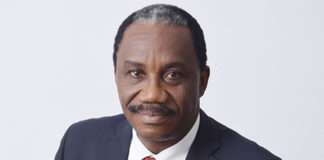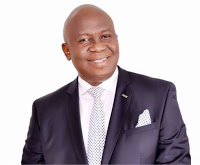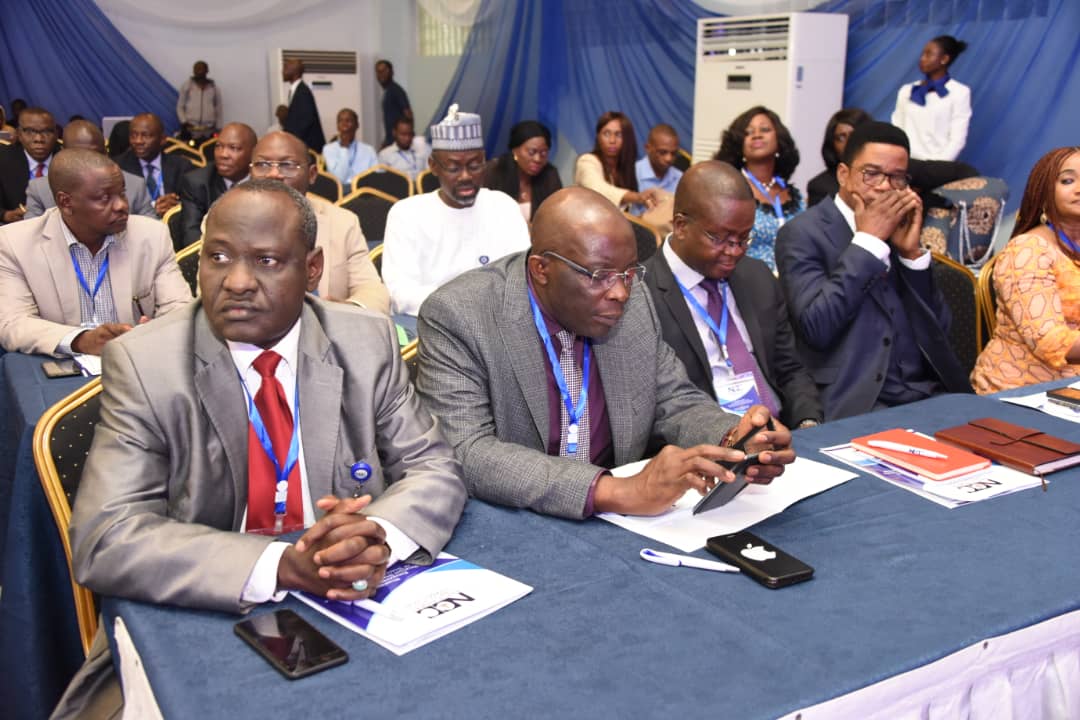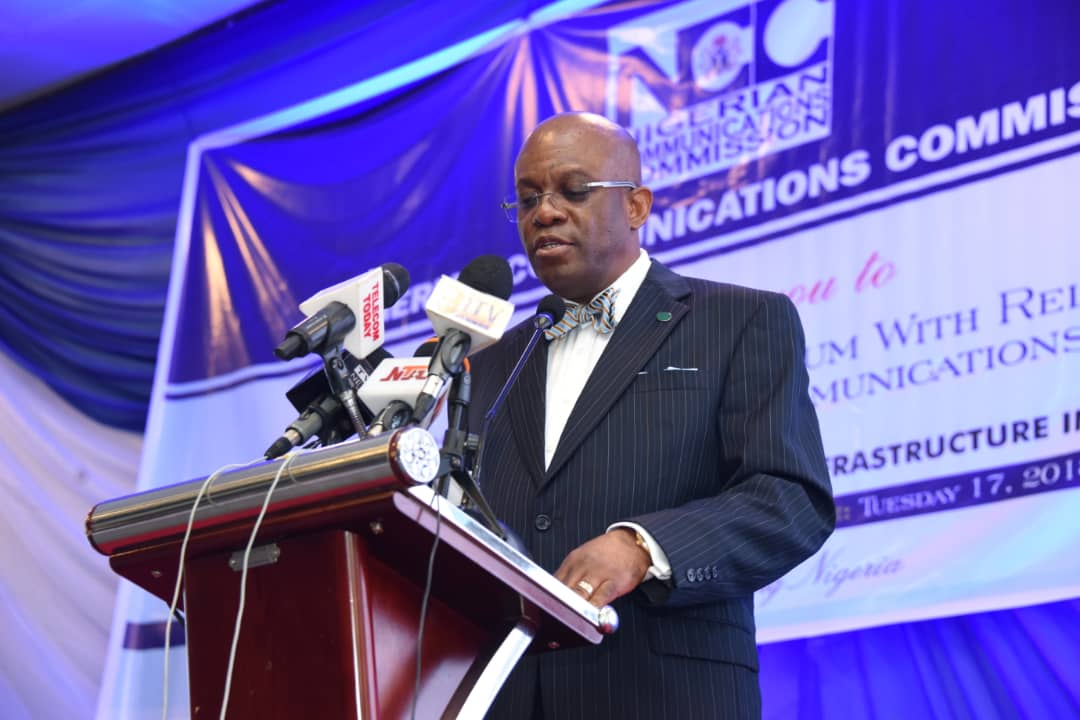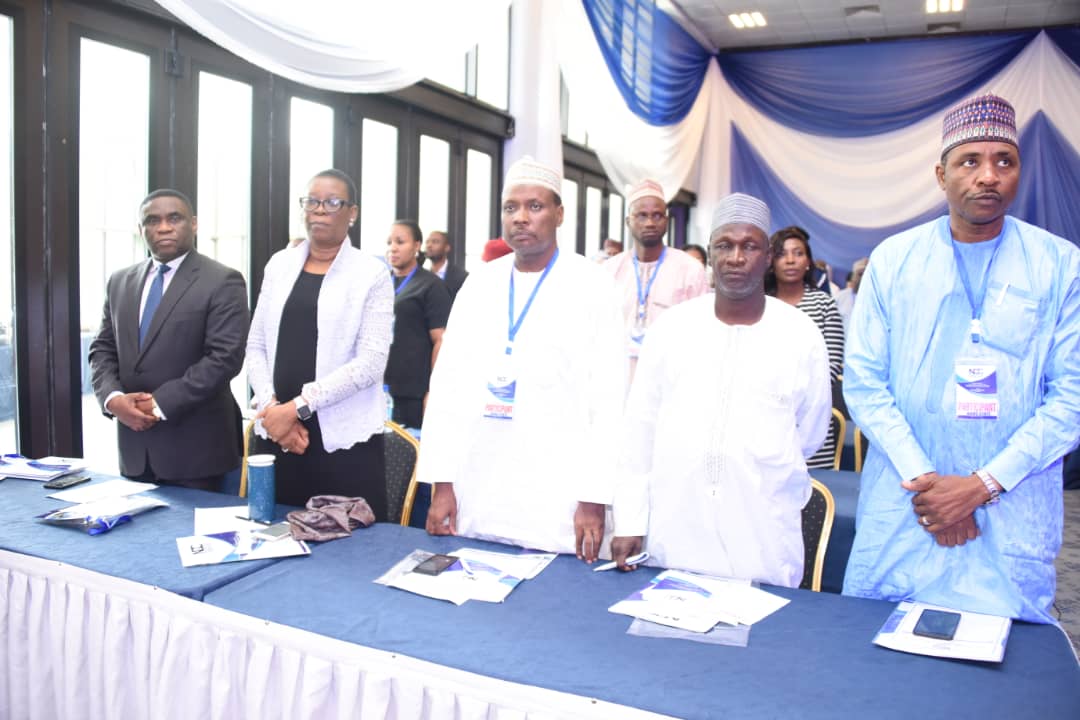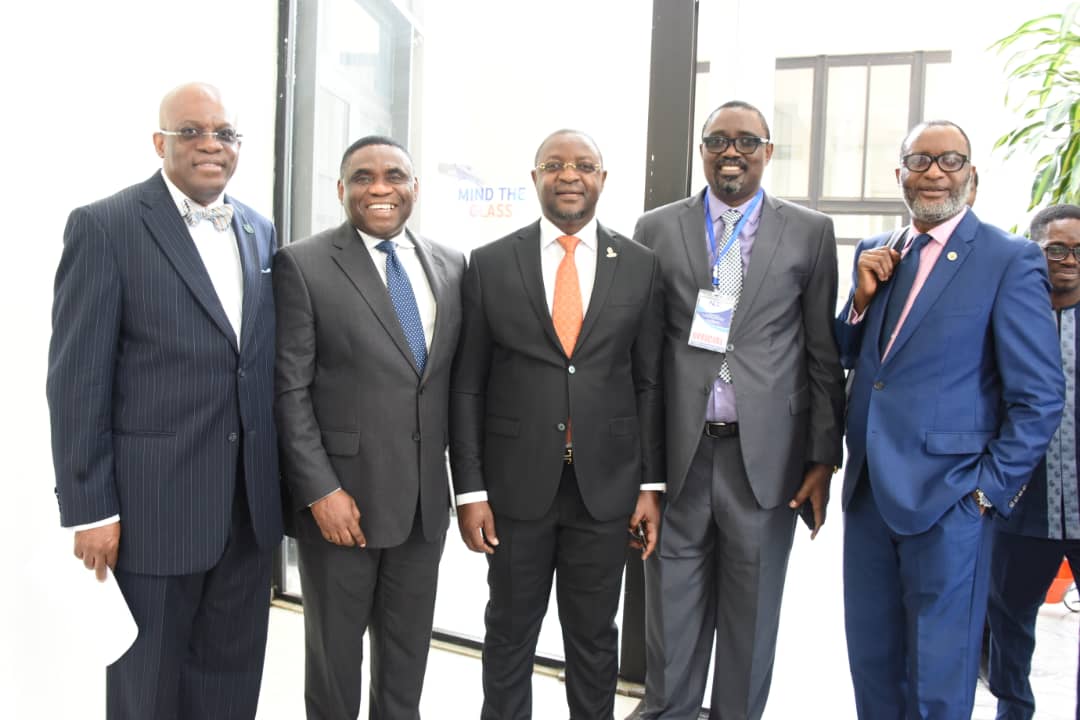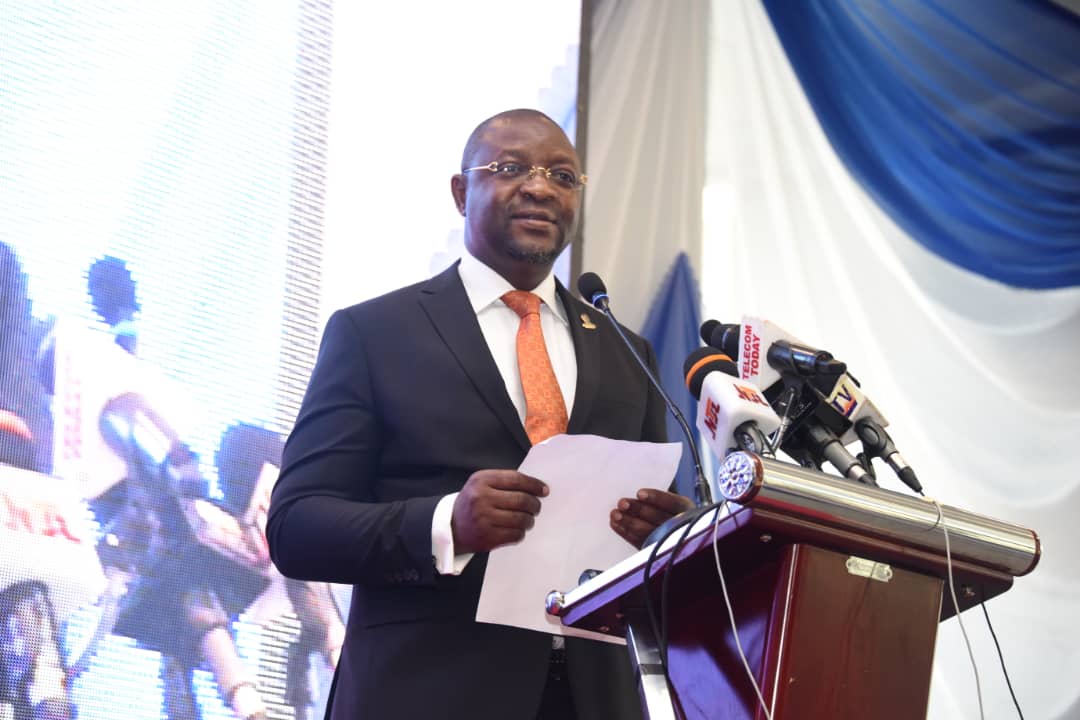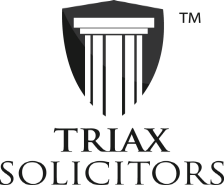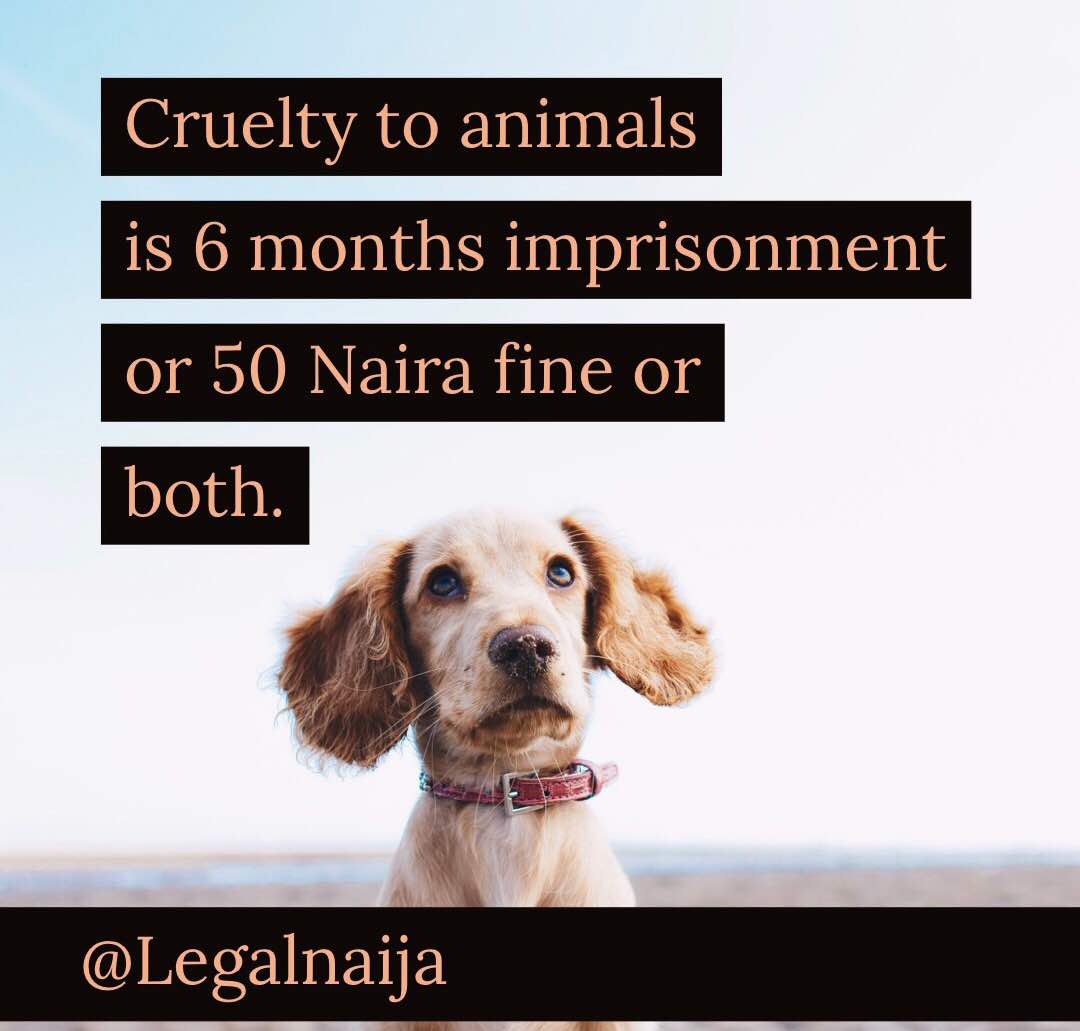
Animal Cruelty Law In Nigeria

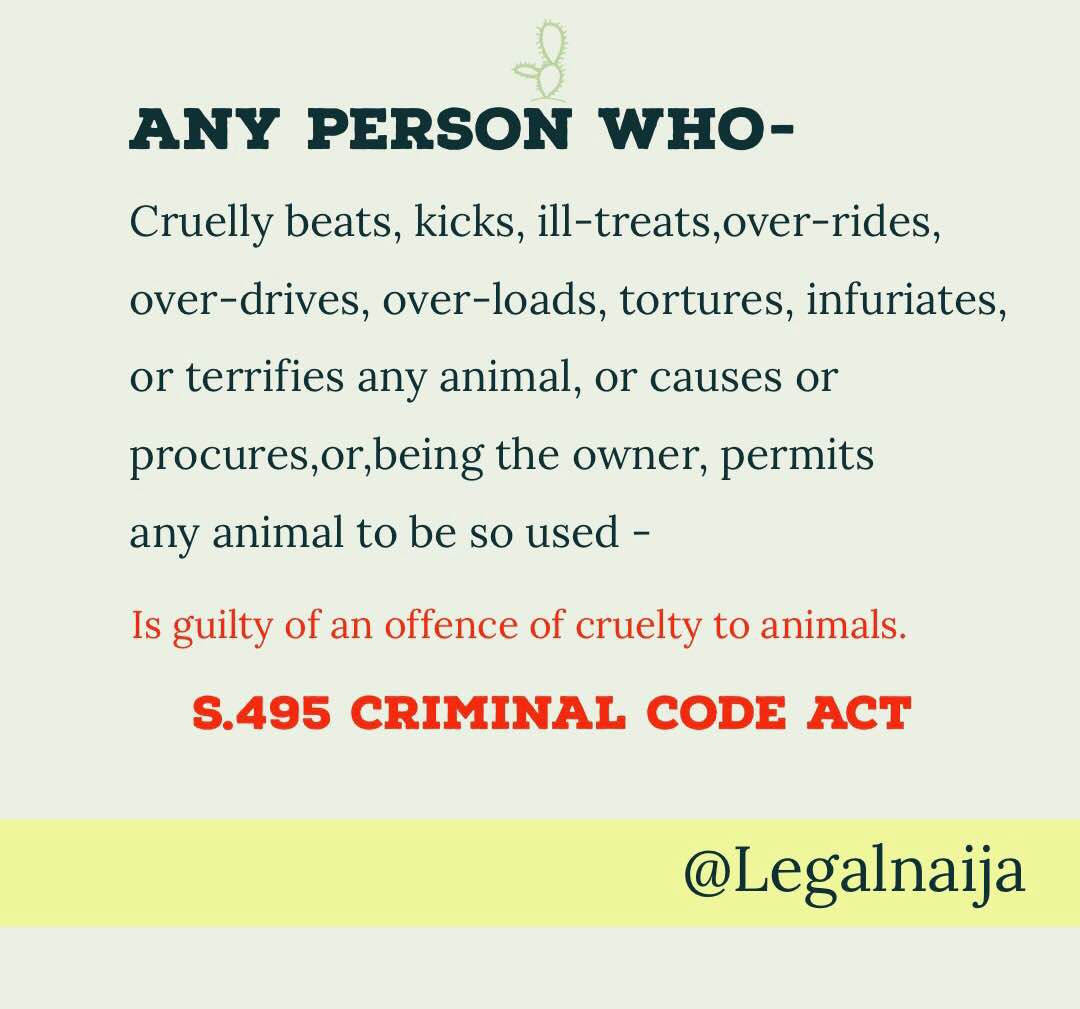
50 Naira right, that’s about 7 cents !!!!!!!! Lol



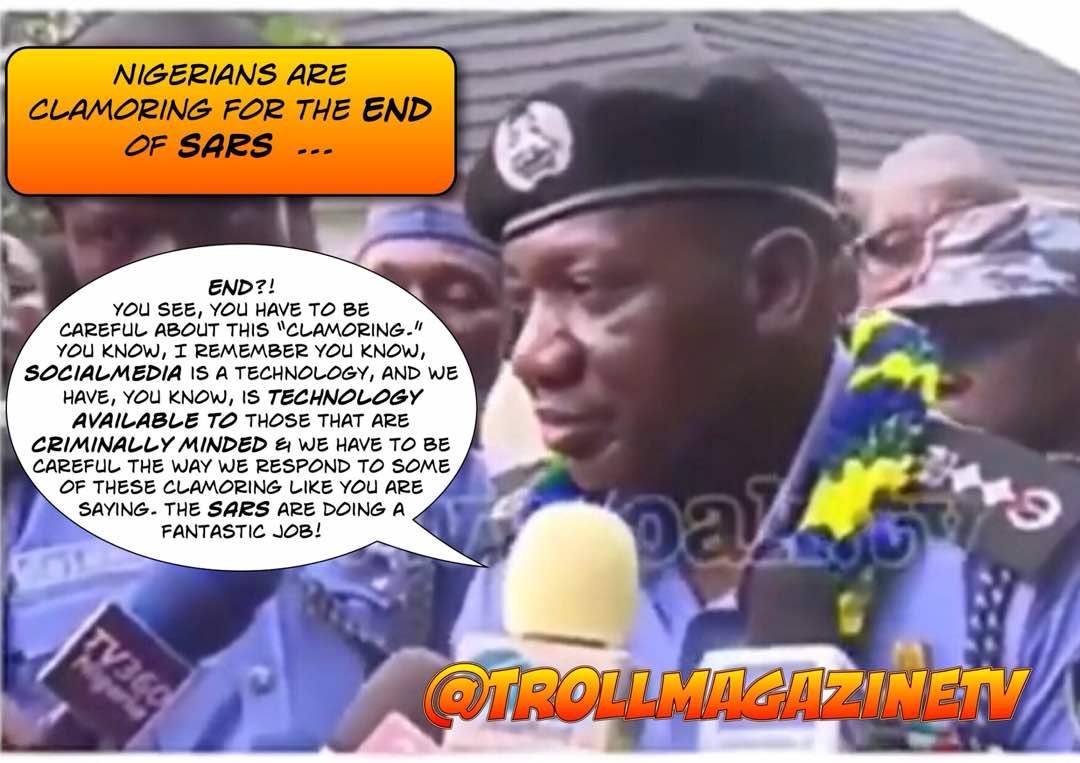

The series of unfortunate events (dearth of National cum internal security due to over concentration on Regime Security) in the past 3years in Nigeria clearly demonstrate that there is no rights to personal liberty in Nigeria. Despite the fact that the clarity of the 1999 constitution as amended on that matter is obvious to the blind-
“Every individual is entitled to respect for the dignity of his person, and accordingly, no person shall be subjected to torture or to inhuman or degrading treatment.” — Section 34 (1)
The Impunity of our police service especially those of the special Anti-Robbery Squad is alarming. The purpose of policing has since be altered for some evil agenda weaponized against the innocent citizenry, with an unwritten clear mandate to terrorize the youth of our nation based on recent data as mined by the #EndSARS #ReformPoliceNG Movement over one year of advocacy.
There are growing Concerns on adolescent killings across Nigeria. —
Emeka Ojinze obtained his VISA to the UAE to study alternative energy sources but was killed in the Anambra in 2017) by a Policeman seeking to extort him, He was 23.
Angela Nkechi Igwetu Corper In Abuja, with just a few hours to passing out, but was gunned down by a trigger happy Police officer. She was 23.
Richard Peter Gora was tortured to death by Policemen over a N10,000 Phone he allegedly bought in market, purported by police to have been stolen in Kaduna. He was 22.
Sofiyat Yekin, nursing mother in Bodija Ibadan, Oyo State, was gunned down by a police while displaying their show of force while intimidating innocent youth in the area for extortion. She was 23.
Final year student Salisu Haruna, plunged to his death in a well in Ekpoma Edo State, while trying to escape the religious abduction by the special anti-cultist squad (SACS) that terrorizes the hostel he visited. He wasn’t found until days later. He was 23.
Mrs Kudirat was killed by the bullet of SARS operatives showing force and high handedness while chasing young boys perceived indiscriminately by them to be yahoo boys.
There are many others shot in the head in public, and several okada riders & bus drivers killed over bribes. Studies also have shown that over 2000 persons have been killed extrajudicially in the past 10years by the police without any closure on the cases and a plethora of cases of abduction and unjust incarceration without charges running into thousands across Nigeria. Suffice to say that the abuse of human rights in Nigeria is becoming a culture.
It is helpful to think about what keeps criminals under control in our society. Ask any sane police officer globally: it is not the police and the courts who keep criminals at bay. It is the society as a whole. It is the ordinary people who call the police when they hear a problem starting. It is the ordinary people who trust the police and cooperate with them to bring criminals to justice. That public trust is held by a thin line which only works when it is backed up by the vast majority of ordinary people.
This, by the way, is why police brutality is so damaging to law and order in our society. If ordinary people lose trust in the police, they wonʼt call and they wonʼt cooperate. If they fear that calling the police to solve crime could result in their neighborsʼ kids being shot dead, they wonʼt call. And they also wonʼt cooperate in more serious cases. Without community backup, the “thin line of trust” starts to feel very thin indeed. And criminals become bolder.
Today, Citizens are violated by Police every 45minutes if not less across Nigerian major cities. Only a fraction of these human rights abuses are reported. Of the reported cases 90% border on armed robbery and kidnapping for ransom using police stations as bases or driving round in circles on our highways while inflicting horrendous physical and psychological damages to their innocent victims.
A wise man once said our adaptability can be both a blessing and a curse, a prolonged look upon wonder and abomination begins to make them mundane. The system however is not broken, it was built that way leading to the current spiraling execrable standards of the modern day when compared to what is obtainable in saner climes .
We have journeyed from domesticity to embracing primitivism under the oppression and impunity of a vile and anachronistic police system. But each time the people demand accountability, it is often met with media costuming and prevarication. They begin to mention training, addition of tags and dramatic reactions that simply moves furniture around without any definite, effective or meaningful restructuring.
A Yoruba apothegm aptly states that it is not he who was struck by a reckless driver that makes mental note of the registration number of the vehicle. Those ignorantly chanting the litotes of Police with the suggestion of reformation of SARS must understand that the culture of impunity of SARS has been ingrained in the system thus becoming a metastasized cancer which will require a total shutdown before it destroys the entire police system which can still be salvaged if we act fast enough.
In this situation where our policing system has been hijacked by ethnic brigade as balkanized, with bold unconscionable pronouncements by the police on the daily, just to maintain the status quo of the ecology of their delicate organized crime syndicate, it clearly demonstrates the ominous tragedy that lies in wait.
We must not culture cancer but ensure it is severed (EndSARS), while we intensively and surgically focus on a holistic reform of the police system (ReformPoliceNG).
A government that cannot protect the lives and properties of her citizens lacks legitimacy. As likened to a man who procures a fast horse at the expense of feeding his children…thus stripped of his income by a sane and conscious society.
In the face of overwhelming statistical evidence, There is no point disagreeing with the smallest expenditure of intelligence as the scenario playing before our very eyes have demonstrably proven to be ominous.
We must understand that the clamor, if unattended, will soon become a movement that’ll clear everything in her path!
#EndSARS #ReformPoliceNG thus has become a platform that bridges these institutional gaps through Pouring the angst of millions into a symbolic cause using engagements via art, science & technology.
The people have built a formidable united front on this regardless of their diversity across Craze, Creed, Clan or Class because based on the trajectory of events, any one could be NEXT.
We need a complete overhaul of the institution so that recommendations of reforms can be implemented. Beginning from the repeal and replacement of the Police Act 1943, (of which the Movement of the people have pushed with the compliance of the legislatives through the second reading. http://punchng.com/police-reform-bill-goes-through-second-reading-in-the-senate/amp/?__twitter_impression=true
Major areas to focus is on recruitment, vetting and reverting, discipline, training, equipment, logistics, welfare, regimentation, career development, leadership, etc. The institution needs to focus on public service (demilitarization of the police and democratizing same). There must minimum acceptable standard that must be maintained professionally. Reforms take time, and there is no other option.
It is time we put premium on the lives of all Nigerians. The world’s most valuable economic resource remains Humanity. We are all a bullet away from being a Hashtag. These are humble recommendations based on the audits in the here and now rebus sic stantibus (as it stands) and anything short of this will warrant a push for a bill to arm Nigerians based on some criteria and qualifications.
These are the issues and recommendations void of the we against them game being touted by unpatriotic and dangerously arrogant, emotionally stunted, inaniloquent hirelings and felons within the police structure transfixed and flummoxed in a perpetual oxymoronic state of mind within a chaotic Game of contradiction, where faith unfaithful kept them falsely true.
Ignorance is the farm in which all forms of corruption and tyranny develop. Within it, all forms of extremism and violence are propagated.- Imam Tawhidi
First published in Nigerian Tribune online 21072018
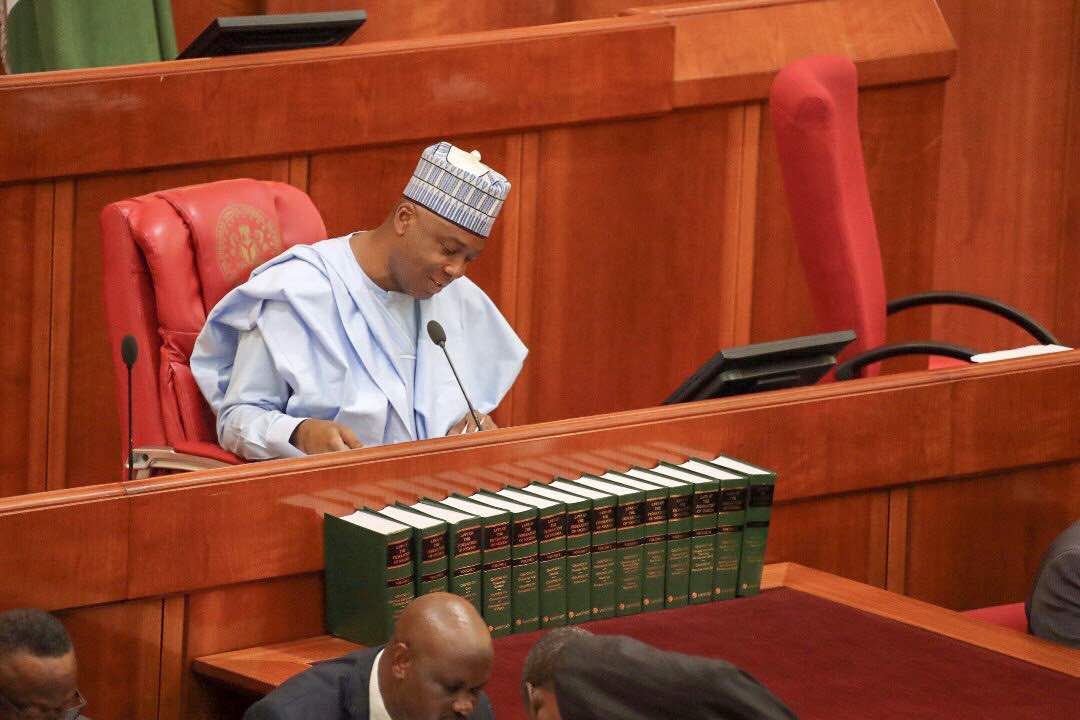

The Nigerian Senate passed the Report of the National Oil Spill Detection and Response Agency (NOSDRA) Act 2006 (amendment) Bill, 2018 (SB. 557).
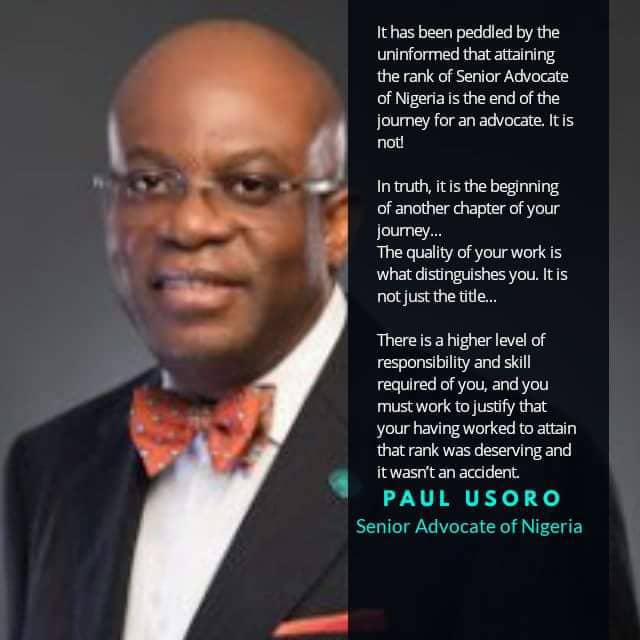

Welfare Programme for Lawyers
One of the topical issues in our profession today, is the poor welfare package for young lawyers and this is for understandable reasons. The demographics of lawyers shows a distantly outnumbered senior lawyers as against the growing multitude of young lawyers. Indeed, the Nigerian Law School on a yearly basis, turns out a great number of young lawyers such that, it is beginning to seem that there are more young lawyers scrambling and rushing after increasingly fewer job opportunities and spaces. With this development comes consistent complaint around poor remuneration packages translating to lower living conditions for lawyers. It is therefore imperative, urgent and critical, beyond election pitches and rhetorics, that amelioration of living conditions for young lawyers be taken seriously, by the NBA at the national level.
PAUL USORO, SAN, FCIArb
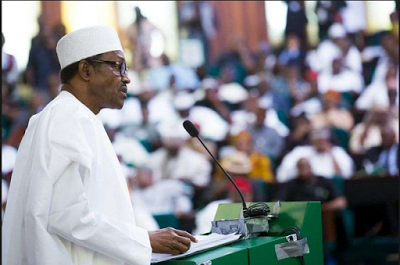

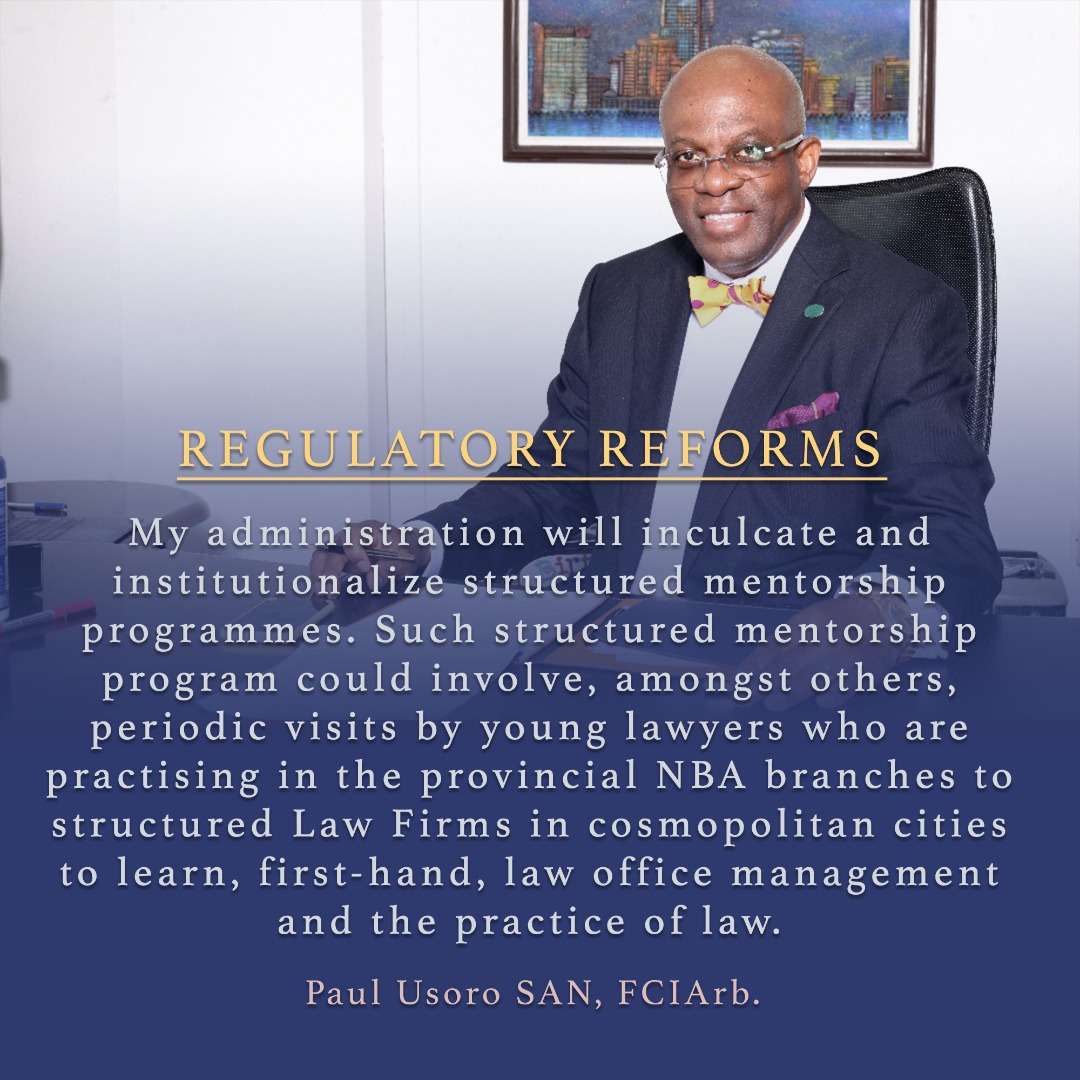

There are three contestants for the office who have been cleared by the Electoral Committee of the NBA (“ECNBA”) and these, in the order of seniority both at the Bar and the Inner Bar, are Paul Usoro, SAN from Akwa Ibom State, Ernest Ojukwu, SAN from Abia State and Arthur Obi Okafor, SAN from Anambra State. The entry of Paul Usoro has caused considerable consternation in the ranks of some members of the Eastern Bar Forum (“EBF”), a voluntary grouping of lawyers, with membership drawn from the pool of lawyers who hail from and are indigenes of the NBA’s Eastern Zone.
Their contention is that there is an unwritten convention between the members of the EBF for the office of the NBA President to rotate between the South-South States in the Zone (Rivers, Bayelsa, Cross River and Akwa Ibom States) and the Igbo States (Anambra, Enugu, Imo, Ebonyi and Abia States) each time that the office circles round to the Zone. They also point out that Okey Wali, SAN from Rivers State was the last occupant of the office in 2012 when the NBA President’s office rotated to the East. For the 2018 Elections, the EBF has adopted one of the 2 candidates from the Igbo States and have waged a vicious campaign against the other two and in particular, Mr. Usoro.
What the proponents of EBF rotation and adoption principles and critics of Mr. Usoro’s entry into the NBA Presidential race know but mischievously fail to point out is that:
(a) EBF and NBA Constitution. The NBA Constitution neither recognizes EBF nor its afore-stated unwritten convention; as far as the Constitution is concerned, any lawyer from the Eastern Zone is qualified to contest for the NBA President’s office when it is the turn of the Zone to produce the President. That explains the clearance of Paul Usoro by the ECNBA, alongside the other two aspirants, for the contest. Furthermore, unlike NBA, membership of EBF is not automatic or mandatory; EBF is a voluntary association of lawyers from the Eastern Zone. There is indeed a significant number of lawyers from the Zone who are not members of the EBF but are mandatorily members of the NBA. Paul Usoro is one of such NBA members who is not a member of the EBF and therefore not bound by the EBF Constitution and its unwritten conventions and practices. The secretariat of EBF confirmed membership is fewer than 400 persons, meaning more than 90% of lawyers from the former Eastern zone are not members of the EBF. This emphasizes the absurdity of such insignificant number to impose Leadership on over 160k lawyers in Nigeria.
(b) Previous NBA Presidents from Eastern Zone. Historically, the 2 (two) States of Akwa Ibom and Cross River (“Akwa-Cross”) have never produced a President of the NBA. This fact is best appreciated and understood from the historical set-up of the defunct Eastern Region of Nigeria which was made up of the former East Central State (now the Igbo States of Anambra, Enugu, Imo, Ebonyi and Abia States), the former Rivers State (now Rivers and Bayelsa States) and the defunct South-Eastern State (made up of the present Akwa Ibom and Cross River States). In that tripod which constitutes the NBA Eastern Zone, only the former South-Eastern State (qua Akwa Ibom and Cross River States) has not produced an NBA President. The former East Central State has produced 5 (five) NBA Presidents while the defunct Rivers State has produced 2 (two). The following are the NBA Presidents that have been produced by the former East Central State (now comprising the 5 (five) Igbo States):
i. Dr. Nwakama Okoro, SAN (Imo State) – 1976-1978
ii. Mr. Andrew Anyamene, SAN (Anambra State) – 1982-1984
iii. Chief (Hon) Ebele Nwokoye (Anambra State) – 1985-1987
iv. Sir Clement O Akpamgbo, SAN (Anambra State) – 1991-1992
v. Olisa Akpagoba, SAN (Anambra State) – 2006-2008
The 2 (two) occupants of the NBA President’s Office from the defunct Rivers State (now constituted into Rivers and Bayelsa States) have been:
i. O C J Okpocha, SAN (Rivers State) – 2000-2012
ii. Okey Wali, SAN (Rivers State) – 2012-2014
(c) “All-Inclusive Bar”. At a time that the Igbo States are calling for inclusive national policies and politics, the discriminatory attack on Paul Usoro is a very sad commentary on the EBF and its membership. It simply depicts the proponents of the EBF position as persons who do not believe in an all-inclusive Bar particularly where such inclusiveness favors the minority States of Akwa Ibom and Cross River States. Instead of accommodating the yearnings of Akwa-Cross for inclusion, the EBF apparatchik have resorted to blackmailing, browbeating and name-calling Mr. Usoro and his supporters, all in an effort to intimidate him out of the race. Even with Mr. Usoro as the President of the NBA in 2018, the Igbo States would still produce, in the aggregate and historically, the highest number of NBA Presidents of Eastern Zone origin viz-a-viz the minority States of the Zone.
(d) NBA Constitution. On the issue of rotation, the NBA Constitution admonishes that “where a position is zoned to any particular geographical zone, the position shall be rotated and held in turn by the different groups and/or sections in the geographical zone”. This provision clearly favors Akwa-Cross States that have never produced an NBA President in the history of the Association particularly considering the historical tripod that makes up the NBA’s Eastern Zone. It would perhaps have been a different situation if no candidate emerged from Akwa-Cross or if the minority States of the East had, in the aggregate produced as much number of NBA Presidents as the Igbo States.
(e) Doubtful EBF Unwritten Convention. The so-called EBF unwritten convention of rotation and adoption of candidates is of doubtful existence. In 2006, Chris Uche, SAN from Abia State contested against Olisa Agbakoba, SAN from Anambra State and Funke Adekoya, SAN from the Western zone for the NBA President’s office. When Okey Wali, SAN contested for the Presidency of the NBA in 2012, Emeka Ngige, SAN from Anambra State contested against him and almost won that election. Even in this 2018 Elections, until the recent disqualification of Afam Osigwue from Anambra State by the ECNBA, there were two other aspirants for the NBA President’s office, apart from Mr. Usoro. Currently, there are two Senior Advocates of Nigeria from the Igbo States who are contesting for the office with Mr. Usoro notwithstanding the so-called EBF adoption of one of them.
(f) “Shoo-in” President. EBF rotation and adoption principles eliminate contest and deprive NBA members of choices and in the process makes a complete mockery of the election concept. As earlier mentioned, the EBF has adopted one of the 3 (three) contestants for the office of the NBAS President and has written to all the other NBA Zones and regional groupings to follow suit and adopt its anointed candidate. On this account, the EBF and its members have waged a vicious and relentless campaign mostly against Mr Usoro for daring to contest the office. The EBF in the process arrogates to itself the right to make a choice of the NBA President for the entire NBA electorate made up of 3 NBA Zones holding all together over 30,000 lawyers/members. With the greatest respect, that is very arrogant and presumptuous of the NBA apart from being anti-democratic, wholly unfair and contrary to all known principles of equity and good conscience. Little wonder that the EBF adoption has been rejected by other regional fora and groups.
(g) Professionalism and Competence. One would have thought that the EBF which purports to be a regional grouping of lawyers, would extol competition amongst qualified lawyers from the Eastern Zone for election as President of the NBA and lay emphasis on professionalism and competence as the most critical qualifications therefor. In that regard, it bears pointing out that no one has suggested, even remotely, that Mr. Usoro is not vested with the skills, competence, sagacity and God-endowed wisdom to pilot the affairs of the NBA as its President. Indeed, everyone including the EBF proponents are agreed that he is amply endowed in that regard and would, as President of the NBA, make the Association very proud, not least, the EBF and its members.
(h) Seniority at the Bar. The legal profession lays emphasis on seniority and Mr. Usoro is older in all respects – biological age, age at the Bar and age in the Inner Bar – than the other 2 (two) aspirants for the NBA President’s office. Clearly, by the culture of the Bar, he should take precedent over the other two in all respects.
These facts fully rebut the ongoing vicious campaign against Mr. Usoro’s candidacy for the NBA President based solely on the purported EBF unwritten policy of rotational adoption of Presidential candidates. Happily, the ECNBA has not pandered to the EBF in that regard. By clearing Mr. Usoro for the elections, the ECNBA is setting a standard in the conduct of competitive elections that lays emphasis on the quality of the candidates and the presentation of credible choices to its electorate.
Chinyere Chukwu
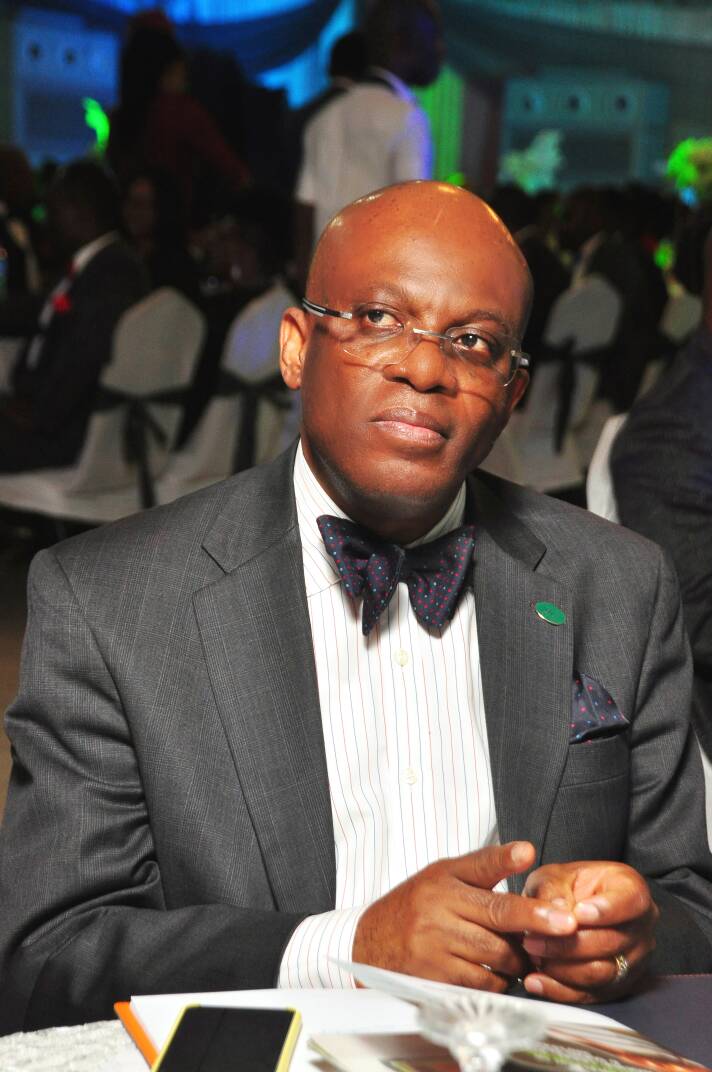

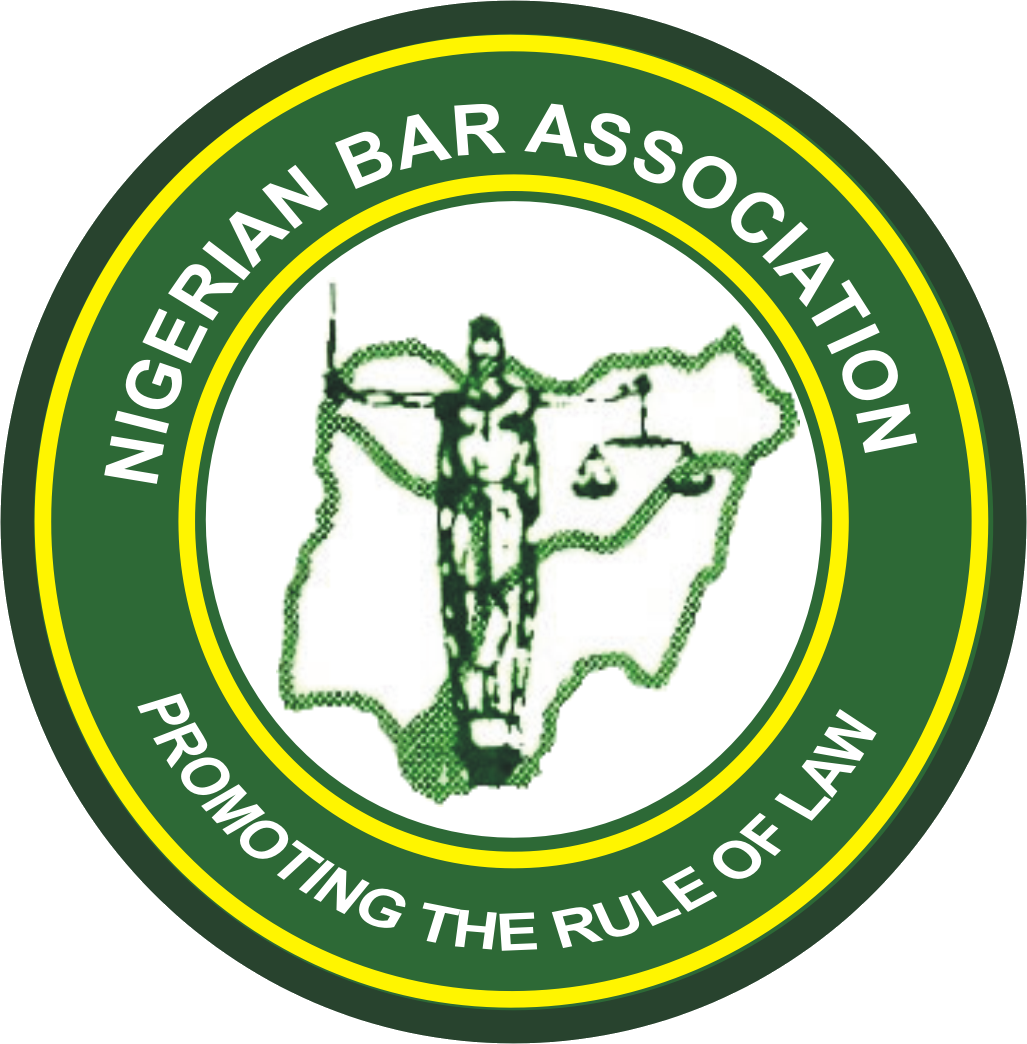

NOTE: ALL INFORMATION IN THIS POST IS COPIED
FROM THE PUBLIC PROFILES OF THE CANDIDATES AS MADE AVAILABLE ONLINE. IT IS
INSTRUCTIVE TO NOTE THAT SOME CANDIDATES DID NOT PROVIDE SOME OF THE REQUIRED
INFORMATION IN THE SAID PROFILES.

